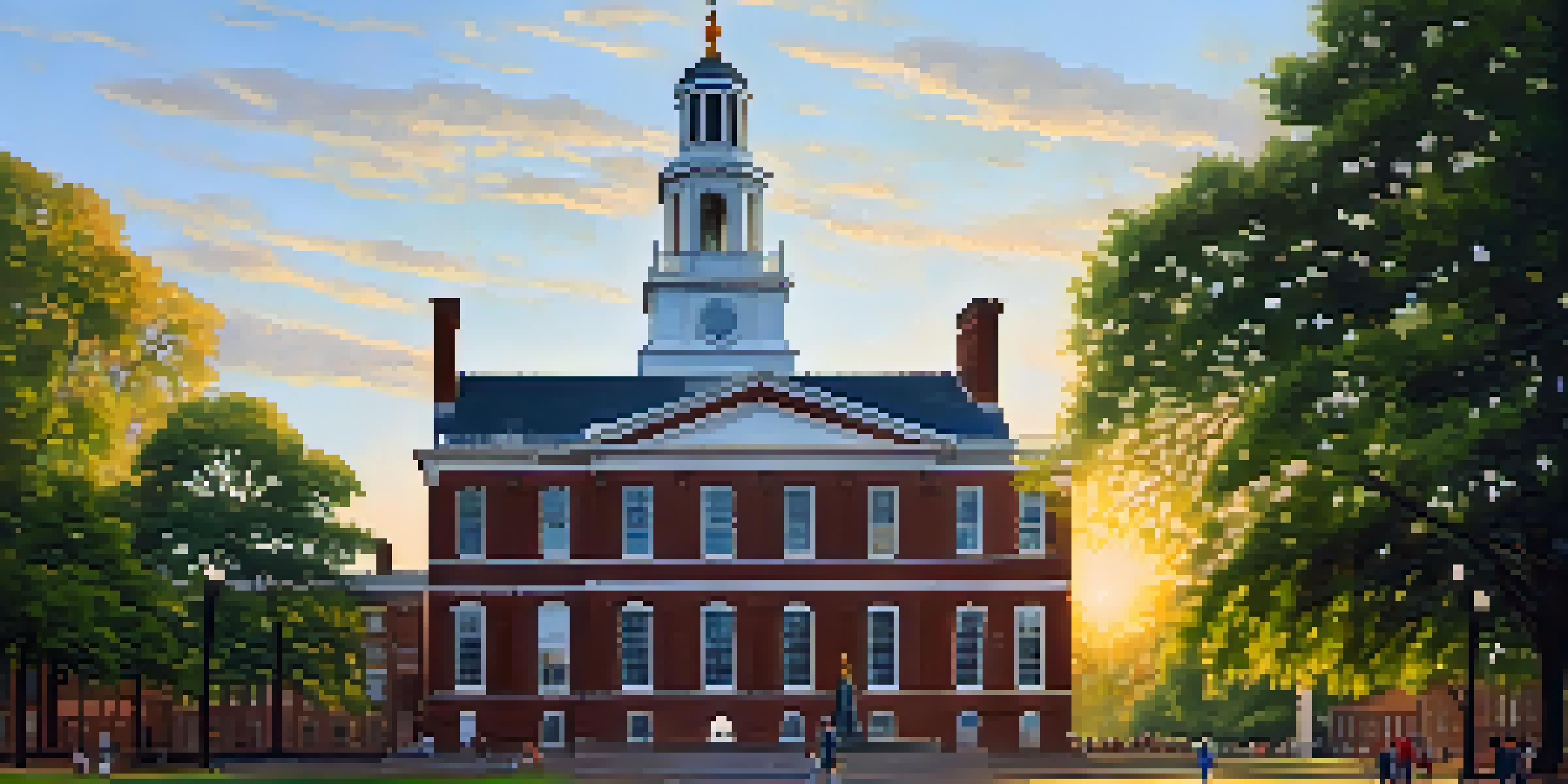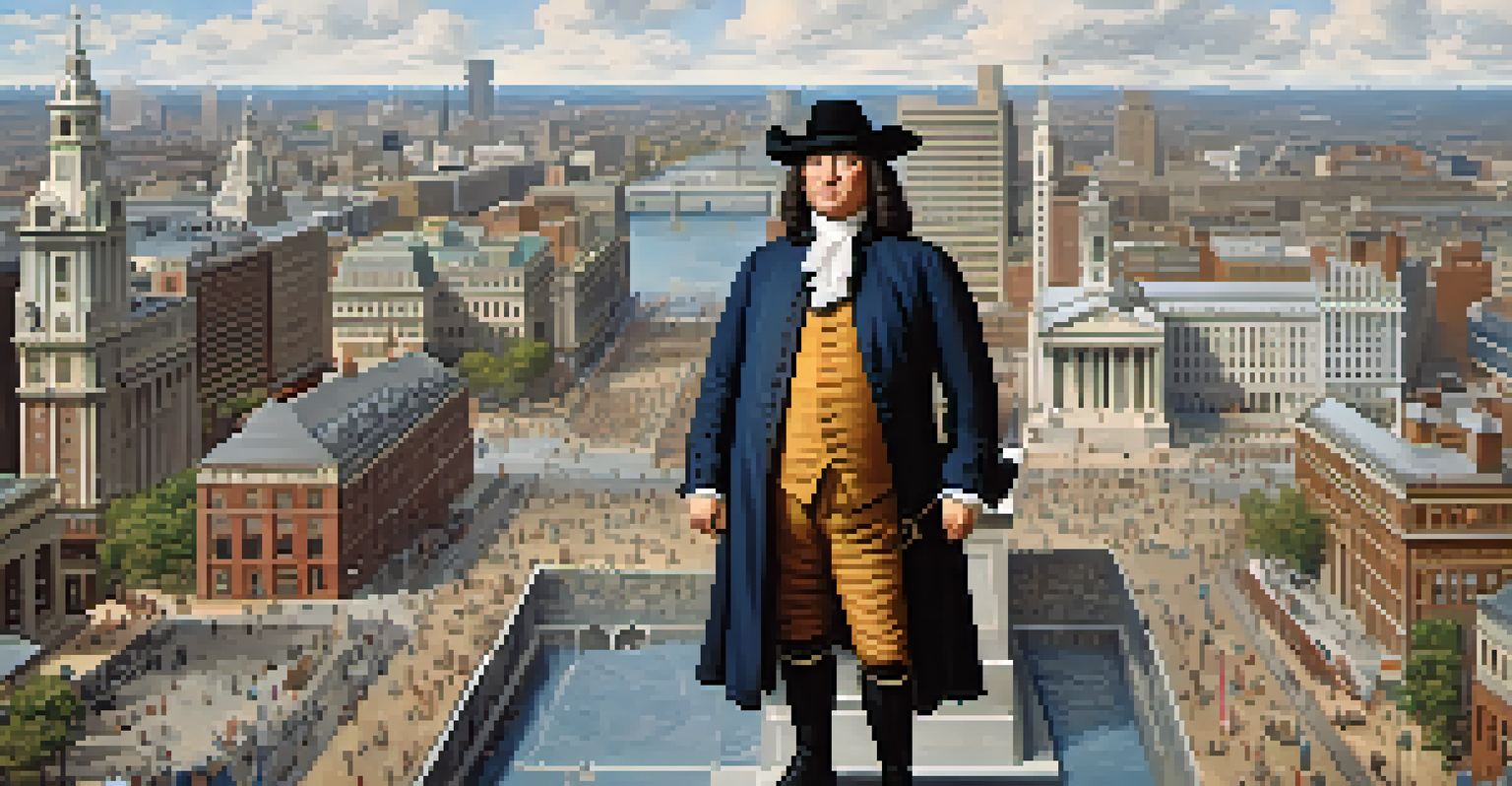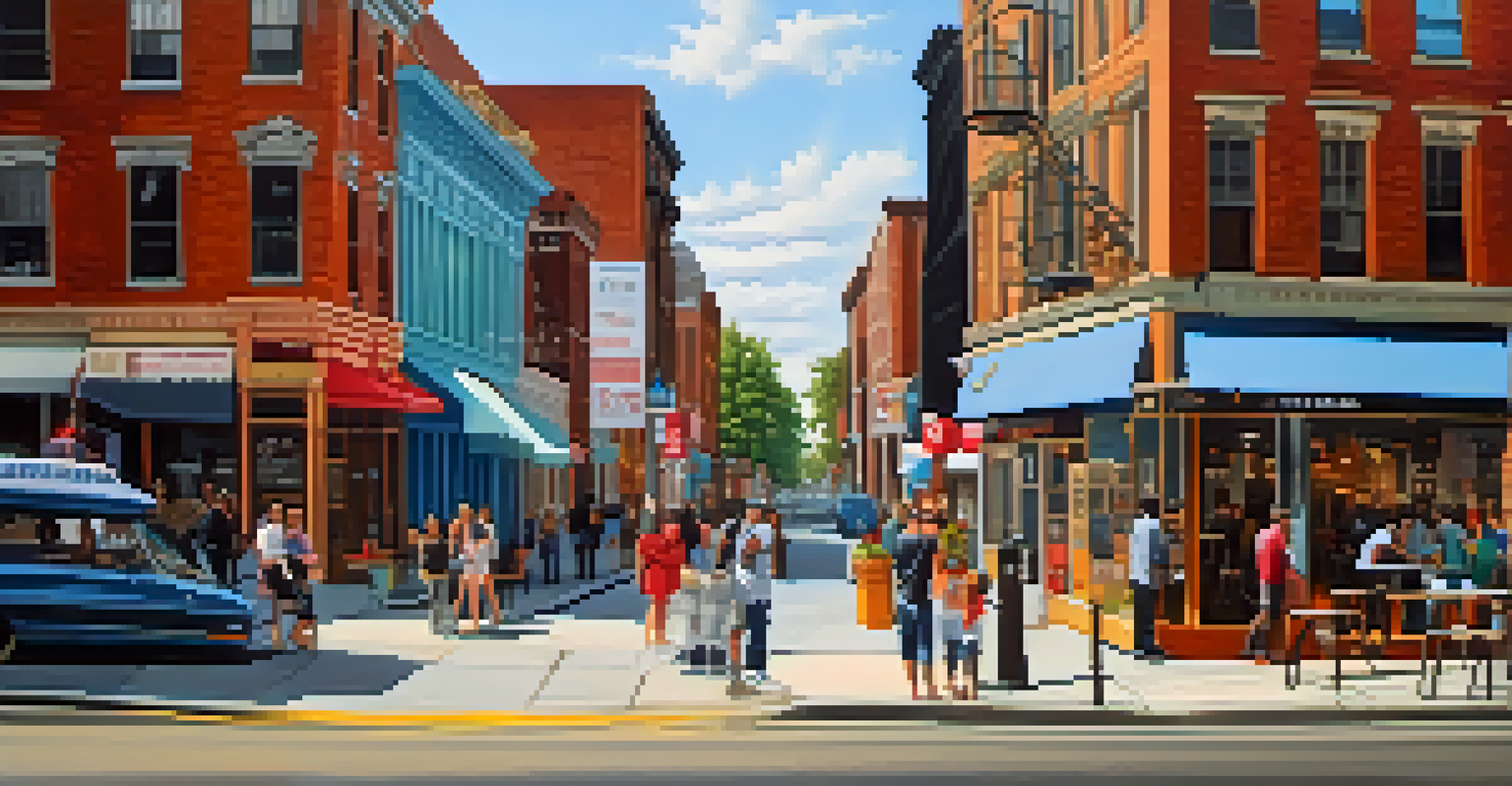The Founding of Philadelphia: A City Born from Revolution

The Visionary Behind Philadelphia: William Penn
William Penn, an English Quaker, envisioned a city of religious freedom and tolerance. In the late 17th century, he sought to establish a place where people could worship without persecution. This dream was not just about a physical space but also about creating a society based on equality and respect.
The great art of government is to make two blades of grass grow where one grew before.
Penn's vision led to the founding of Philadelphia in 1682, which means 'City of Brotherly Love' in Greek. His intention was to build a community where diverse beliefs could coexist harmoniously. This idea was revolutionary at the time and laid the groundwork for the city's unique identity.
As Penn laid out the city’s streets and parks, he infused it with democratic ideals, making it a model for future American cities. His plans reflected not only urban design but a commitment to inclusivity that resonated with many settlers. Thus, Philadelphia began its journey as a beacon of hope and freedom.
A Tapestry of Cultures: Early Settlers in Philadelphia
Philadelphia quickly became a melting pot of cultures, attracting settlers from various backgrounds. People from England, Germany, Ireland, and other regions brought their traditions and customs, enriching the city’s fabric. This diversity was not just welcomed; it was celebrated, making Philadelphia unique.

The Quakers, who were among the first settlers, played a crucial role in fostering an open and tolerant society. Their commitment to peace and equality influenced the city's social dynamics. As a result, Philadelphia became a safe haven for those escaping religious persecution.
William Penn's Vision of Tolerance
William Penn established Philadelphia as a city that embraced religious freedom and diverse beliefs.
This mix of cultures contributed to the city’s vibrant atmosphere and laid the groundwork for its future as a cultural hub. The early settlers' collaborative spirit helped create a strong sense of community. This foundation would prove essential as the city grew and evolved over the years.
The Role of Philadelphia in the American Revolution
Philadelphia emerged as a pivotal center during the American Revolution. It was here that the First and Second Continental Congresses convened, uniting the colonies in their fight against British rule. This gathering of leaders marked a significant turning point in American history.
Liberty is not a right to do what we like, but what we ought.
The city served as a stage for debates and discussions about independence, with passionate voices arguing for freedom. Figures like Benjamin Franklin and Thomas Jefferson played crucial roles in shaping revolutionary ideas. Their contributions helped galvanize public support for the cause.
As the birthplace of the Declaration of Independence in 1776, Philadelphia became a symbol of liberty and hope. The city’s commitment to the revolutionary ideals of democracy and self-governance inspired countless others. Thus, Philadelphia solidified its legacy as a cornerstone of American history.
The Significance of Independence Hall
Independence Hall stands as a testament to Philadelphia's revolutionary spirit. Originally built as a State House in the 18th century, it became the site where the Declaration of Independence and the U.S. Constitution were debated and adopted. This historic building embodies the ideals of freedom and democratic governance.
Visitors today can walk the same halls where great minds gathered to discuss the future of a nation. The architecture itself is a blend of Colonial and Georgian styles, reflecting the era's values. Independence Hall has been designated a UNESCO World Heritage site, further highlighting its importance.
Philadelphia's Role in Independence
The city was pivotal during the American Revolution, hosting key events like the Continental Congress and the signing of the Declaration of Independence.
This iconic landmark not only represents Philadelphia's rich history but also serves as a reminder of the ongoing quest for liberty. It’s a place where the past meets the present, inspiring generations to uphold the principles of democracy. Independence Hall remains a focal point for those seeking to understand America’s founding narrative.
The Constitution: Crafting a New Nation in Philadelphia
In 1787, Philadelphia hosted the Constitutional Convention, where delegates gathered to draft the United States Constitution. This momentous event aimed to address the weaknesses of the Articles of Confederation and create a stronger federal government. The stakes were incredibly high, as the future of the nation hung in the balance.
The debates were intense, with passionate arguments for and against various proposals. Figures like George Washington, James Madison, and Alexander Hamilton played instrumental roles in shaping the Constitution. Their collaborative efforts resulted in a document that would define the framework of American governance.
The ratification of the Constitution in Philadelphia marked a significant milestone in the nation’s history. It established a system of checks and balances and ensured the protection of individual rights. This foundational moment solidified Philadelphia’s status as a key player in the birth of American democracy.
Philadelphia: A Center for Enlightenment and Education
In addition to its political significance, Philadelphia flourished as a center for education and enlightenment during the 18th century. Institutions like the University of Pennsylvania were founded, emphasizing learning and critical thinking. This focus on education attracted intellectuals and thinkers, making the city a hub for innovation.
The city was home to prominent figures such as Benjamin Franklin, who championed education and scientific inquiry. His establishment of the first public library and the first fire department reflected a commitment to community welfare. Philadelphia became synonymous with progress and enlightenment ideals.
A Legacy of Education and Culture
Philadelphia evolved into a center for enlightenment and education, fostering critical thinking and innovation that shaped the nation's intellectual landscape.
As a result, the city's educational institutions played a vital role in shaping the nation's intellectual landscape. The emphasis on knowledge and civic responsibility laid the foundation for a well-informed citizenry. Philadelphia’s legacy as an educational center continues to influence the city today.
Philadelphia Today: A City with Revolutionary Roots
Today, Philadelphia stands as a vibrant city rich in history and culture, deeply rooted in its revolutionary past. Its streets are lined with historic sites, museums, and diverse neighborhoods that reflect the spirit of its founders. The city continues to attract millions of visitors eager to explore its heritage.
Modern Philadelphia embraces its role as a cultural melting pot, celebrating diversity through festivals, art, and cuisine. The same values of tolerance and freedom that were central to its founding still resonate today. This blend of history and modernity gives the city a unique character.

As Philadelphia moves forward, it remains committed to the principles of liberty and democracy. The echoes of its revolutionary past serve as a reminder of the ongoing journey toward justice and equality. In many ways, Philadelphia is not just a city; it is a living testament to the ideals that shaped a nation.